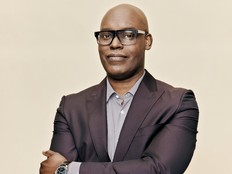Why millions trusted Dr. Ruth for the most intimate advice
There was no issue of human sexuality that she wouldn't snatch up

Article content
Reviews and recommendations are unbiased and products are independently selected. Postmedia may earn an affiliate commission from purchases made through links on this page.
It is in no way surprising that Ruth Westheimer, a sex therapist of indefatigable zest and zeal, lasted 96 years on this bitter earth. The only surprise is that, in memory, she seems always to have been something like 96 – or at least far enough along that she could be granted the exemption we normally grant the elderly, which is the ability to say exactly what’s on their minds.
And so she did, as Dr. Ruth, first with an FM radio call-in show called “Sexually Speaking,” then a cable TV program, then multiple platforms over multiple decades. At the peak of her popularity, she commanded – and, it must be said, discomfited – an audience of millions, for there was no issue of human sexuality that she wouldn’t snatch up. Masturbation, premature ejaculation, cunnilingus, the differing vaginal sensations produced by penises and vibrators: Everything was fair play. Even the silly questions posed by her prank callers she answered at face value, because the goal remained, in her words, for people to “get some,” and the end game was nothing short of America’s sexual liberation.
Recommended Videos
She wasn’t the first doctor to take up that cross, but she may have been the first to make it sound like a good time. Gone were the white medical coats and dour miens of Kinsey and Masters and Johnson. In their place stood a well-coiffed, 4-foot-7 pixie with merry eyes and extravagantly rolled r’s (German was her first language, English her fourth) and a girlish screech of a laugh. This formidably educated woman – Sorbonne, Columbia, Cornell – had an equally formidable twinkle, which suggested to those watching that she was getting some herself and that there was something kind of hilarious about sex in the first place, because it’s the thing that reminds us that we’re still animals.
If Dr. Ruth were to launch a call-in show today, she would probably be listening to a different set of concerns – gender dysphoria, the ace spectrum – and she herself, in comparison to Dan Savage or Susie Bright, might come off as a well-intentioned square. Indeed, reading her advice now, what stands out is its unimpeachable good sense: Have a nice time. Make sure your partner has a nice time, too. Indulge your fantasies. Try different things. Use condoms.
What made her studio audiences squirm and giggle at the time was her blunt deployment of anatomy. “She talks about the penis like it’s a cooking show,” said Robin Williams, and there was indeed a culinary relish in how she described the commingling of part with part. “Make believe it’s an ice cream cone,” she said to the woman balking at oral sex, and I’m willing to bet that you can now read the word “clitoris” in a mainstream publication because Dr. Ruth made it sound as commonplace and harmless as “turnip.”
It’s hard now to explain her cultural ubiquity to someone who wasn’t around in the 1980s. In those days, you really could be everywhere. On every talk show, TV network, magazine cover, billboard. On the lips of every comedian and politician and pundit. Everywhere you looked, Dr. Ruth was waiting for you. We never asked for her, but, without knowing it, we needed her, because our country’s sexual revolution had triggered a counter-wave of punitive religiosity, which had, among other things, reconfigured a terrifying viral epidemic as God’s retribution against homosexuals.
And so, to many young gay men of that generation, Dr. Ruth was the thoughtful, nonjudgmental voice of authority we never expected to hear, even from the people who were charged with loving us. “There is no such thing as normal,” she would say, again and again, and it had the curious effect of making us feel normalized, or at least part of the vast continuum of human divergence.
Dr. Ruth’s zeitgeist moment ended pretty much with the ’80s, but to the end of her days, she was teaching, writing, speaking, showing up wherever there were eyes to see and ears to hear. Her compulsive need to fill her calendar, as revealed in the 2019 documentary “Ask Dr. Ruth,” had something in common with showbiz survivors like Joan Rivers and had behind it, I think, the same fear of being forgotten.
Maybe she needed us as much as we needed her, or maybe she grasped just how much we needed each other. The orphan refugee whose parents were swept away by the Holocaust would recall decades later “the importance of being touched, of being loved,” and would, in her final years, sound the alarm against human loneliness. From her angle, sex wasn’t just fun and games; it was death’s most fearsome enemy. It was Eros holding Thanatos to a draw.











Postmedia is committed to maintaining a lively but civil forum for discussion. Please keep comments relevant and respectful. Comments may take up to an hour to appear on the site. You will receive an email if there is a reply to your comment, an update to a thread you follow or if a user you follow comments. Visit our Community Guidelines for more information.